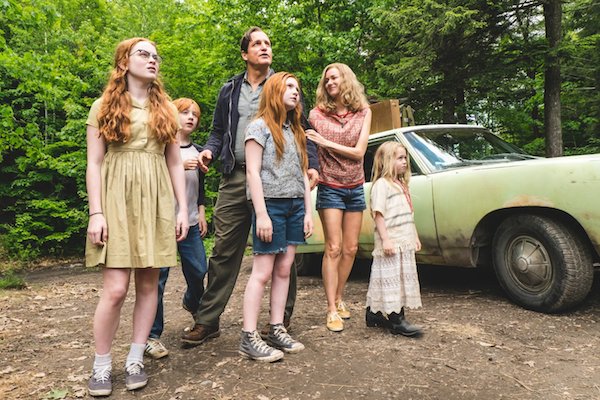
'The Glass Castle' asks too much of viewers
By Martha K. Baker
To read of family dysfunction, an alcoholic father slapping his child, an artsy mom not feeding her bairn is one thing. To see it on the screen is so painful as to be avoided. That is the case with The Glass Castle, based on the 2005 memoir by Jeannette Walls.
Rex Walls was charming, a talker and a dreamer. He was also a drinker. Rose Mary Walls was an artist, who'd rather paint than mother. He dreamed of building a glass castle for his children; she thought about him working so they could have indoor plumbing. Their four children could think of little else but surviving by holding each other against these loving but insupportable adults.
Jeannette Walls wrote about growing up like Topsy in Welch, West Virginia, in her memoir, but when Destin Daniel Cretton directed her story from his own co-written screenplay, he exploited the physical, psychological, and sexual abuse Walls described in her words. Unlike his earlier and more laudable film, Short Term 12, Cretton created "The Glass Castle" as little more than a battle ground. Yes, it seems that everything turns out okay, but enduring the road to that okay tortures the viewer.
Again, Cretton works with Brie Larson as he did in Short Term 12. Larson stars as the adult Jeannette, a gossip columnist, graduate of Barnard, and wife of a rich man. She embodies that Jeannette, especially when she confronts her manipulative father at her engagement party. The child Jeannette is portrayed so well by Ella Anderson and Chandler Head.
Naomi Watts plays Walls' mother against Woody Harrelson as her dad. Neither actor looks as shop-worn as the real parents did. Watts fades into the background, but Harrelson has the vicious look needed for such a wrecked man. Anyone who has grown up with a man with that look knows it well.
The Glass Castle tortures more than graces.


